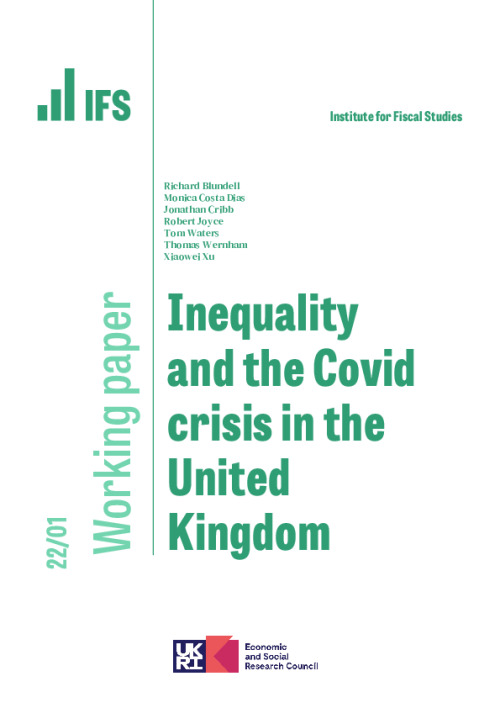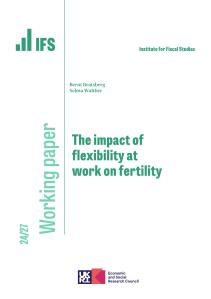Downloads

WP202201-Inequality-and-the-Covid-crisis-in-the-United-Kingdom.pdf
PDF | 1005.09 KB
We review the effects of the Covid-19 pandemic on inequalities in education, the labour market, household living standards, mental health, and wealth in the UK. The pandemic has pushed up inequalities on several dimensions. School closures particular disrupted the learning of poorer children, leading to lower attainment. Mental health worsened for those groups (women and younger adults) who had poorer mental health pre-pandemic. Lockdowns and social distancing particularly reduced the ability of younger, lower-earning, and less educated people to work. However, job-support programmes combined with the expanded welfare system meant that, if anything, disposable income inequality fell. Rising house prices have benefited people in particular around the middle of the wealth distribution. In the longer term, lower work experience for the less educated and missed schooling could push up some inequalities. Increased rates of working from home seem likely to persist which may increase some inequalities and decrease others.
Authors

CPP Co-Director
Richard is Co-Director of the Centre for the Microeconomic Analysis of Public Policy (CPP) and Senior Research Fellow at IFS.

Deputy Research Director
Monica is a Deputy Research Director and Professor of Economics at the University of Bristol, with an interest in Labour, Family and Public Economics.

Deputy Director
Robert is a Deputy Director. His work focuses on primarily on the labour market, income and wealth inequality, and the design of the welfare system.

Associate Director
Jonathan is an Associate Director and Head of Retirement, Savings and Ageing sector, focusing on pensions, savings and later-life economic activity.

Associate Director
Tom is an Associate Director at the IFS and Head of the Income, Work and Welfare sector.

Senior Research Economist
Xiaowei joined the IFS in 2018 and works in the Income, Work and Welfare sector.

Research Economist
Tom is a Research Economist in the Income, Work and Welfare sector, having joined the IFS in 2020.
Working Paper details
- DOI
- 10.1920/wp.ifs.2022.0122
- Publisher
- Institute for Fiscal Studies
Suggested citation
Blundell, R et al. (2022). Inequality and the Covid crisis in the United Kingdom. London: Institute for Fiscal Studies. Available at: https://ifs.org.uk/publications/inequality-and-covid-crisis-united-kingdom (accessed: 30 June 2024).
More from IFS
Understand this issue

Election Special: Is there a 'conspiracy of silence' between both parties?
6 June 2024

What does the Conservative's higher education announcement this week mean for apprenticeships and 'low-value' university courses?
1 June 2024

Liberal Democrat manifesto: a reaction
10 June 2024
Policy analysis

How do the last five years measure up on levelling up?
19 June 2024

Free breakfast clubs in schools: what Labour’s plans would mean for pupils and families
25 June 2024

How should we interpret parties’ public spending pledges this election?
23 June 2024
Academic research

Income inequality in Ireland, 1987–2019
28 June 2024

Components of the evolution of income inequality in Sweden, 1990–2021
28 June 2024

The impact of flexibility at work on fertility
11 June 2024